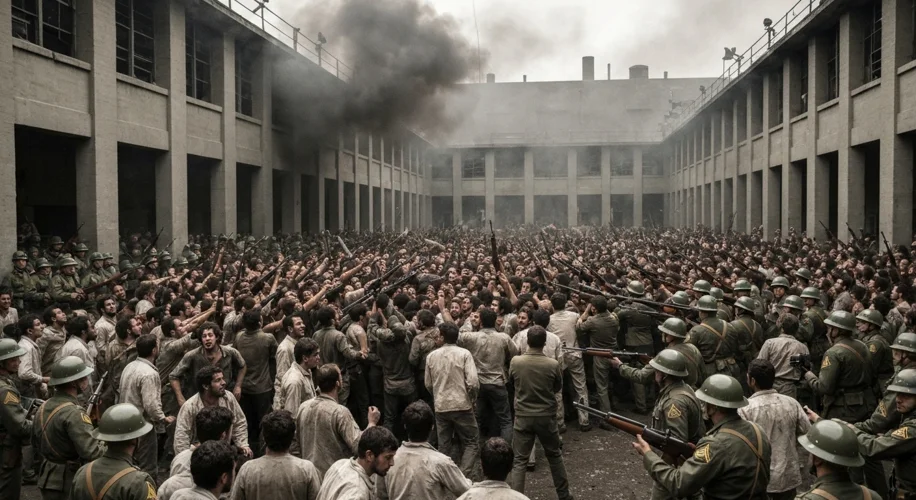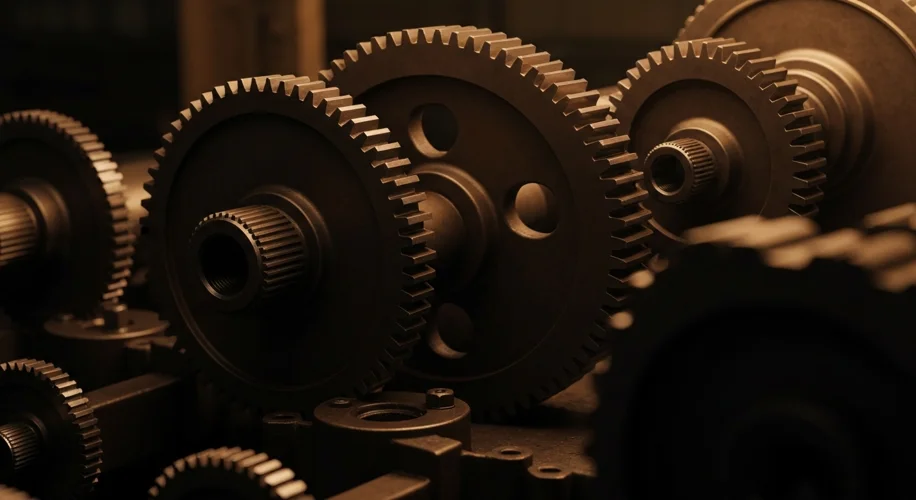In the sweltering heat of September 1971, a thunderclap of rebellion echoed from the stone walls of Attica Correctional Facility in upstate New York. This was not just a riot; it was a desperate, bloody cry for humanity, a stark exposure of the rot festering within America’s prisons. The events of those four harrowing days would forever etch themselves into the nation’s consciousness, serving as a grim testament to the cost of neglect and the unyielding pursuit of dignity.
Attica was a crucible of despair. Built in the early 20th century, its towering concrete facade concealed a reality of overcrowding, abysmal sanitation, rampant brutality, and a deeply ingrained racial bias. Inmates, predominantly Black and Latino, lived in a state of near-constant torment, subjected to beatings, meager rations, and the psychological erosion of their very beings. The air within Attica was thick not only with the summer humidity but also with simmering resentment, a potent cocktail of injustice waiting for a spark.
That spark came on September 9, 1971. Over 2,000 incarcerated men, driven to the edge, seized control of D-Block, the prison’s most populous wing. Their demands were not for riches or escape, but for basic human rights: an end to the savage beatings, adequate food and medical care, and the right to education and religious freedom. Led by charismatic figures like Frank “Big Black” Smith and L.D. Barkley, they formed a council, their voices amplified by a shared agony. For four days, they held sway, a self-governing microcosm of defiance against a system that had rendered them invisible.

The world watched, a mixture of fear and morbid fascination gripping the nation. Journalists, lawyers, and observers were allowed into the prison, bearing witness to the inmates’ organized, albeit desperate, attempts at self-governance. This was not the savage onslaught the authorities portrayed; it was a plea for recognition. Yet, Governor Nelson Rockefeller remained unmoved, opting for a brutal display of overwhelming force.
On September 13, the dark chapter reached its bloody climax. State police and National Guardsmen, armed with shotguns and submachine guns, stormed the prison. In a hail of gunfire, they unleashed a torrent of bullets, not just on the inmates, but indiscriminately. When the smoke cleared, the true horror was revealed: 33 inmates lay dead, and 29 inmates had been shot in the back. Ten hostages, guards and prison employees, also perished, many of them victims of the same barrage of bullets that had claimed the lives of their captors.
In the aftermath, the narrative spun by the authorities painted the inmates as savage animals and the state troopers as heroes. Investigations were conducted, but their findings often served to exonerate the state and further demonize the incarcerated. The brutality of the state’s response, however, could not be entirely erased. The images of shattered bodies, the testimonies of survivors, and the sheer scale of the carnage painted a far grimmer picture.
The Attica Uprising was a watershed moment, a brutal awakening for America. It ripped away the veneer of civilized justice, exposing the raw, violent underbelly of a system designed for punishment, not rehabilitation. The event galvanized prison reform movements, leading to lawsuits and increased scrutiny of prison conditions nationwide. It highlighted the racial inequities within the justice system and the desperate need for systemic change.
While the immediate aftermath saw a hardening of state control in many prisons, the echoes of Attica refused to be silenced. The fight for inmate rights, for humane treatment, and for accountability within the correctional system has continued, fueled by the memory of those who dared to demand their humanity in the face of overwhelming power. The recent, and sadly not uncommon, news of deaths due to neglect in correctional facilities serves as a somber reminder that the lessons of Attica are still being learned, and the cry for justice, though sometimes muffled by stone and steel, can never be truly extinguished.

